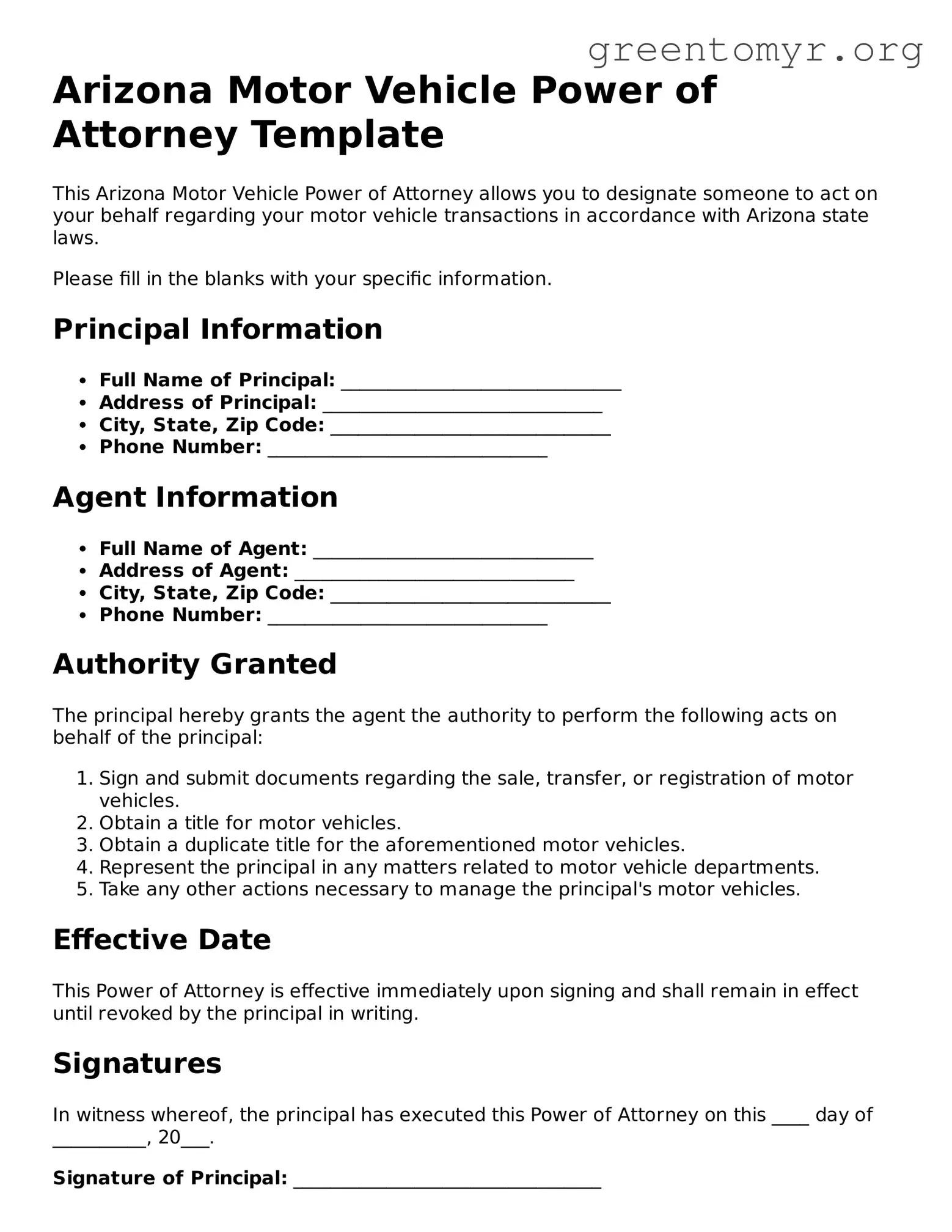Arizona Motor Vehicle Power of Attorney Template
This Arizona Motor Vehicle Power of Attorney allows you to designate someone to act on your behalf regarding your motor vehicle transactions in accordance with Arizona state laws.
Please fill in the blanks with your specific information.
Principal Information
- Full Name of Principal: ______________________________
- Address of Principal: ______________________________
- City, State, Zip Code: ______________________________
- Phone Number: ______________________________
Agent Information
- Full Name of Agent: ______________________________
- Address of Agent: ______________________________
- City, State, Zip Code: ______________________________
- Phone Number: ______________________________
Authority Granted
The principal hereby grants the agent the authority to perform the following acts on behalf of the principal:
- Sign and submit documents regarding the sale, transfer, or registration of motor vehicles.
- Obtain a title for motor vehicles.
- Obtain a duplicate title for the aforementioned motor vehicles.
- Represent the principal in any matters related to motor vehicle departments.
- Take any other actions necessary to manage the principal's motor vehicles.
Effective Date
This Power of Attorney is effective immediately upon signing and shall remain in effect until revoked by the principal in writing.
Signatures
In witness whereof, the principal has executed this Power of Attorney on this ____ day of __________, 20___.
Signature of Principal: _________________________________
Date: _________________________________
Signature of Agent: _________________________________
Date: _________________________________
Notary Public:
State of Arizona
County of _______________
Subscribed and sworn before me this ____ day of __________, 20___.
Signature of Notary: _________________________________
My commission expires: ________________
